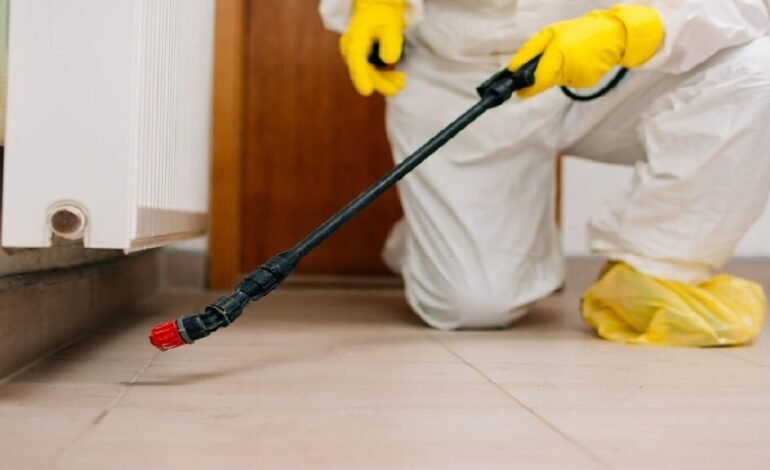Mastering Home Pest Prevention: 10 Expert Strategies for a Bug-Free Living Space

Keeping your home free from unwanted pests is a common concern for homeowners. This article explores effective strategies to prevent and manage pest infestations, ensuring a clean and comfortable living environment. Let’s explore ten expert-recommended techniques for maintaining a pest-free home.
Understanding Common Household Pests
Before implementing prevention strategies, it’s crucial to know your potential invaders. Common household pests include:
- Ants
- Cockroaches
- Rodents (mice and rats)
- Spiders
- Flies
- Termites
- Bed bugs
Each of these pests poses unique challenges and requires specific prevention methods. Let’s explore general strategies that work against most household pests.
1. Seal Entry Points
One of the most effective ways to prevent pests is to block their access to your home. Inspect your house regularly for potential entry points and seal them promptly.
Key Areas to Check:
- Cracks in foundation
- Gaps around windows and doors
- Openings around pipes and utility lines
- Torn screens on windows and vents
Use caulk, steel wool, or appropriate sealants to close these gaps. Remember, even tiny openings can serve as entryways for pests.
2. Maintain a Clean Kitchen
Due to abundant food sources, the kitchen is often the heart of pest activity. Keep your kitchen clean and organized to deter pests.
Kitchen Cleanliness Tips:
- Wipe counters and stovetops daily
- Store food in airtight containers
- Clean up spills immediately
- Take out trash regularly
- Keep sink free of dirty dishes
3. Proper Food Storage
Proper food storage is crucial in preventing pest infestations. Insects and rodents are attracted to easily accessible food sources.
Effective Food Storage Practices:
- Use airtight containers for pantry items
- Keep fruits and vegetables in the refrigerator
- Store pet food in sealed containers
- Avoid leaving pet food out overnight
- Regularly check stored foods for signs of pests
4. Manage Moisture Issues
Many pests are attracted to damp environments. Addressing moisture problems in your home can significantly reduce pest attraction.
Moisture Control Measures:
- Fix leaky pipes and faucets
- Use dehumidifiers in damp areas
- Ensure proper ventilation in bathrooms and kitchens
- Address any standing water issues in your yard
5. Regular Cleaning and Decluttering
A clean, uncluttered home is less attractive to pests. Regular cleaning removes potential food sources and eliminates hiding spots.
Cleaning Best Practices:
- Vacuum floors and upholstery weekly
- Dust surfaces regularly
- Reduce clutter, especially in storage areas
- Clean under and behind appliances periodically
6. Proper Waste Management
Improper waste management can attract pests to your property. Implement good waste disposal practices to minimize this risk.
Waste Management Tips:
- Use trash cans with tight-fitting lids
- Clean garbage cans regularly
- Keep outdoor trash areas clean and sealed
- Compost responsibly, away from the house
7. Landscape Maintenance
Your yard can be the first line of defense against pests. Proper landscape maintenance can deter pests from approaching your home.
Yard Care Strategies:
- Keep trees and shrubs trimmed away from the house
- Remove leaf litter and debris from your yard
- Store firewood away from the house
- Maintain a dry zone around your foundation
8. Natural Pest Deterrents
Many natural substances can help deter pests without the use of harsh chemicals.
Effective Natural Deterrents:
- Peppermint oil for mice and spiders
- Citrus peels for ants and cockroaches
- Diatomaceous earth for various crawling insects
- Lavender for moths and flies
9. Regular Inspections
Regular home inspections can help you catch pest problems early. Look for signs of infestation during your routine cleaning and maintenance.
Signs to Watch For:
- Droppings or urine stains
- Gnaw marks on wood or wires
- Unusual smells
- Nests or webs in corners or hidden areas
10. Professional Pest Control Services
While DIY methods are effective for prevention, sometimes professional help is necessary. If you’re dealing with a persistent or severe infestation, consider seeking pest control St George services or similar professionals in your area. They can provide targeted treatments and ongoing prevention strategies tailored to your situation.
Implementing Your Pest Prevention Plan
Creating a pest-free home environment requires consistent effort and a multifaceted approach. Combining these strategies and remaining vigilant can significantly reduce the likelihood of pest infestations.
Remember, prevention is key. Regular maintenance, cleanliness, and early intervention can save you from dealing with more severe pest problems in the future. Stay proactive in your pest prevention efforts to enjoy a comfortable, pest-free living space.
Read more: https://newpawsibilities.com/












